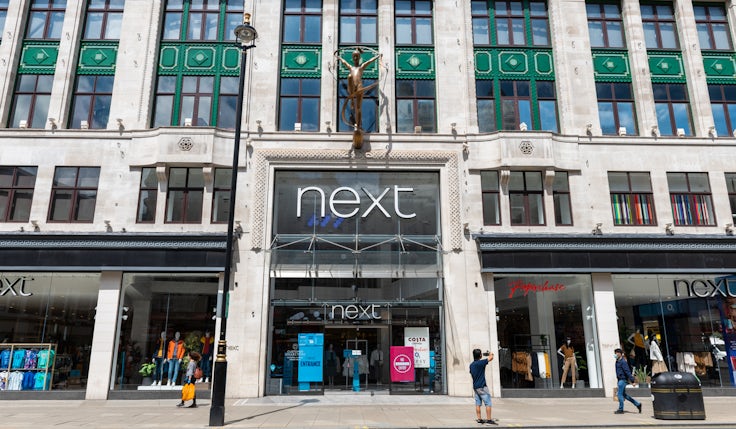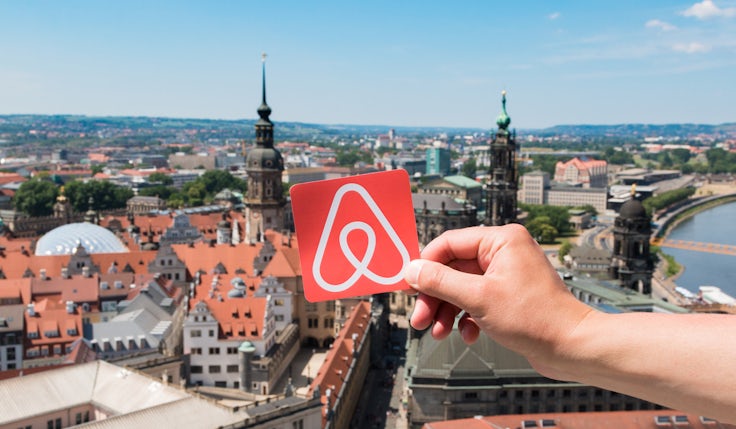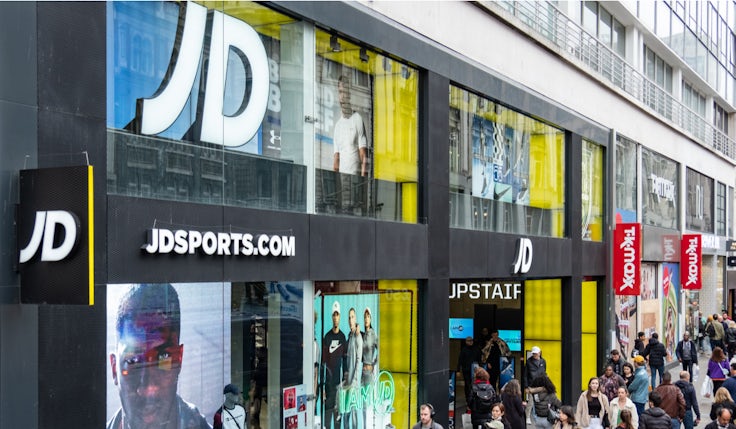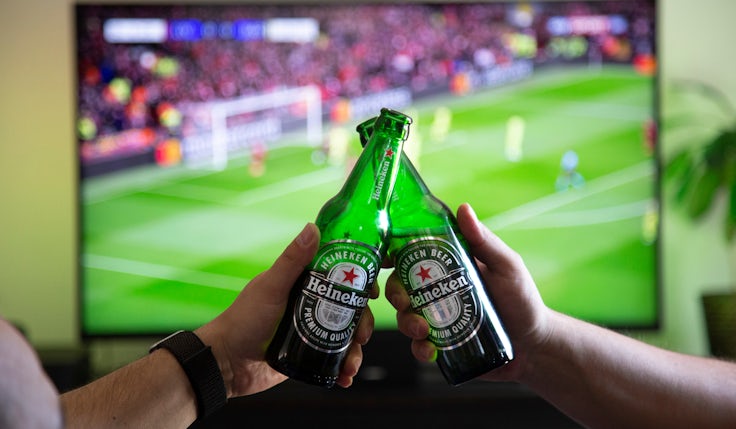Expedia, Pets at Home, M&S: Everything that matters this morning
Good morning and welcome to Marketing Week’s round-up of the news that matters in the marketing world today.
Expedia moves away from performance marketing
Online travel company Expedia says that it has moved away from “being transactionally focused” and using performance marketing to drive sales, in favour of building “longer-lasting direct relationships with loyal high-lifetime value customers”.
Expedia CEO Peter Kern told investors during a Q2 2022 earnings call overnight that loyalty members and app users are far more valuable to the business than non-members and non-app users. He added that the “entire company is focused” on getting these kinds of customers into the business.
The business reports that in Q2 2022, 33% more new loyalty members joined compared to the same quarter pre-pandemic (Q2 2019). App downloads were also 58% higher last quarter than in Q2 2019.
In Q2 2022 Expedia saw revenues of $3.2bn (£2.64bn), which is up 51% from the same period in 2021, and up 1% from Q2 2019. The company said the number of lodging bookings made through its website was at the highest ever. Lodging generated $2.4bn (£1.98bn) of revenue in Q2 2021, up from $1.53bn (£1.26bn) in the same period last year.
In the second quarter of 2022, lodging accounted for 75% of Expedia’s revenue, advertising and media accounted for 7%, air accounted for 3%, and all other revenues accounted for the remaining 15%.
As the business emerges from the pandemic and looks to capitalise on travel by building relationships with high-value customers it has upped its marketing spend. In Q2 2022 the company’s direct sales and marketing spend was at $1.5bn (£1.23bn), representing a 12% increase versus Q2 2019 levels.
Expedia’s chief financial officer Eric Hart said that the company is aiming to “be aggressive in marketing”, as it increases its spend coming out of the pandemic. The shifted focus onto loyal customers rather than transactions will also allow this spend to work more efficiently, the business claimed.
UK likely to fall into recession for more than a year warns Bank of England
The Bank of England has warned the UK is likely to fall into a recession this autumn. It says that the economy will shrink in the last three months of this year and will continue to do so until at least the end of 2023.
The bleak prediction came as the Bank pushed interest rates up by 0.5%, representing the biggest increase since 1995. This was the sixth increase since December and means the rate is now 1.75%. The interest rate increase will add around £650 to annual repayments for those with an average tracker mortgage. The bank also warned that there will be a 5% fall in real terms living standards.
Governor Andrew Bailey told the BBC that the interest rate increase was needed in the face of rising inflation. But that he was sympathetic to concerns from the public.
“I know that they will feel, ‘Well, why have you raised interest rates today, doesn’t that make it worse from that perspective in terms of consumption?’, I’m afraid my answer to that is, it doesn’t because I’m afraid the alternative is even worse in terms of persistent inflation,” he said.
The Bank of England predicts that inflation will reach 13.3% in the fourth quarter of this year and remain above 10% until the middle of 2023. It’s forecast to fall back marginally to 9.5% in the third quarter and 5.5% by the end of the 2023.
The recession isn’t predicted to cut as deep as the 2008 downturn, which saw UK banks collapse, but could last just as long.
READ MORE: Bank of England warns the UK will fall into recession this year
UK households cutting streaming subscriptions
 Netflix and Amazon Prime Video both saw hundreds of thousands of households cut their subscriptions last quarter, according to figures from BARB’s Establishment Survey.
Netflix and Amazon Prime Video both saw hundreds of thousands of households cut their subscriptions last quarter, according to figures from BARB’s Establishment Survey.
The survey found that in Q2 2022, over half a million less UK households had access to Amazon Prime Video compared to Q1 2022. This is a 4% decrease in its subscriber numbers, which sat at 13.35m in Q1. Around 206,000 less UK households had access to Netflix in Q2 compared to Q1, representing a 1% decrease from its 17.29m figure in the first quarter.
Overall, the number of UK households with access to at least one subscription video-on-demand (SVOD) service declined to 19.19m from 19.57m in Q1 2022. This represents a 2% decrease.
While Netflix and Amazon Prime Video remain the most subscribed-to services in the UK, with 60% and 45% of households subscribed respectively- these SVOD services both saw declines in the quarter where rivals saw growth.
Disney+ and Apple TV+ both experienced small quarterly gains, bucking the trend for the period. 91,000 more UK households had access to Disney+ in Q2 2022, representing growth of just over 1% for the SVOD service. Apple TV+ grew its UK households by 3% from 1.57m in Q1, to 1.61m.
BARB’s chief executive Justin Sampson speculates that the overall decline in subscriptions has been prompted by increased costs elsewhere.
“We don’t ask households why they choose to add or drop subscriptions, although the sharp increase in energy prices in March/April must have been a catalyst for people to review all their monthly outgoings. The numbers we report today show SVOD services aren’t immune as households work hard to make ends meet,” he said.
Pets at Home sees revenues rise as it focuses on retaining customers
Pets at Home is seeing its revenues grow, which it reports is driven by its ability to acquire new customers as well as produce high levels of retention.
In its Q1 2023, which ran from April to 21 July 2022, Pets at Home grew its loyalty initiatives. It reports that sign ups to its ‘Puppy and Kitten Club’ averaged 25,000 per week, a figure that is three times higher than pre-pandemic. The number of active ‘VIP Club’ members increased 10.7% year over year to 7.4m.
27% of these VIPs shopped across more than one channel. Group CEO Lyssa McGowan highlighted the “unique” omnichannel model of the business as well as “the passion and expertise” of its colleagues which brings about “a key competitive advantage”.
Store revenues grew 4.3% in Q1 2023, compared to Q1 2022, while omnichannel revenues grew 13.5%.
Total group revenue was up 7.1% to £404.7m in the period. The retailer, which also offers veterinary and grooming services, retained its outlook for the full year, despite the challenges of inflation, which it says it is managing “through a planned series of productivity and efficiency initiatives”.
M&S launches competition to win training with football heroes
M&S is launching a competition to allow a school or club to win a football masterclass with a home nations hero player.
The competition will run through the Sparks loyalty scheme and will give customers the chance to nominate a local school or football club to win a training session with a football hero from England, Scotland, Wales or Northern Ireland.
Once customers have registered for the competition they can enter for their school or team of choice by scanning their Sparks card every time they buy an M&S Eat Well product. The more Eat Well products bought, the more entries into the draw.
The Eat Well range is designed by M&S to help consumers make healthier choices, with an Eat Well flower logo indicating which products are in the range. Almost 2,000 M&S products fall into the range.
The competition forms part of M&S Food’s ‘Eat Well, Play Well’ partnership with the home nation FAs. England football legend Ian Wright stars in a new ad which promotes the campaign and competition.
“Our Eat Well Play Well campaign is all about showing that healthier choices don’t have to be boring – our Eat Well products are delicious, fresh and great value. We want to inspire families and children across the UK to get involved this summer and beyond – who better to motivate us all than football legend Ian Wright,” says M&S Food marketing director Sharry Cramond.
Thursday, 4 August
Next notes ‘sharp reversal’ of lockdown trends as online growth slows
Next has seen a “sharp reversal” of 2021’s lockdown trends during the first half of the year, as online growth slows and physical retail bounces back.
The fashion chain says online growth appears to have reverted to its longer-term trajectory, while winning lockdown categories such as home and sportswear have “retreated” with formalwear back in demand, a reversal of fortunes Next says plays to its strengths.
During the second quarter, full price sales rose 5%, £50m ahead of previous guidance, encouraging the retailer to increase its full year profit guidance by £10m to £860m, up 4.5% versus last year.
Next explains that at first sight it would appear online sales have “ground to a halt” – up 0.2% in the three months to 30 July – while retail is “having something of a renaissance”, up 12% over the period. However, the retailer believes these changes reflect a short-term reversal of pandemic trends and are not indicative of longer-term consumer behaviour.
Looking on a three-year basis pre-Covid, online sales rose 44.4% during the second quarter, while retail sales increased 4.7%. Full price sales are also continuing to improve, up 25.5% compared to 2019 levels.
Next admits full price sales performance in physical retail versus pre-Covid levels is “much better” than the retailer anticipated, however it points out the chain could be benefiting from the number of competing stores which have closed in the past three years.
Online return rates have reverted to close to pre-pandemic levels at 42%, following two years of “exceptionally low” returns during the pandemic.
Next is now targeting a £10m increase in its central pre-tax profit guidance, noting £15m of additional profit driven by “better than expected” full price sales in the first half. Retail sales represented a larger percentage of total full price sales in the second quarter, which improved margins by £6m.
The retailer is expecting similar gains in the second half, although these will be partially offset by higher tech and logistics costs, as well as lower clearance rates of surplus stock.
Adidas hails DTC strength as marketing investment rises 8%
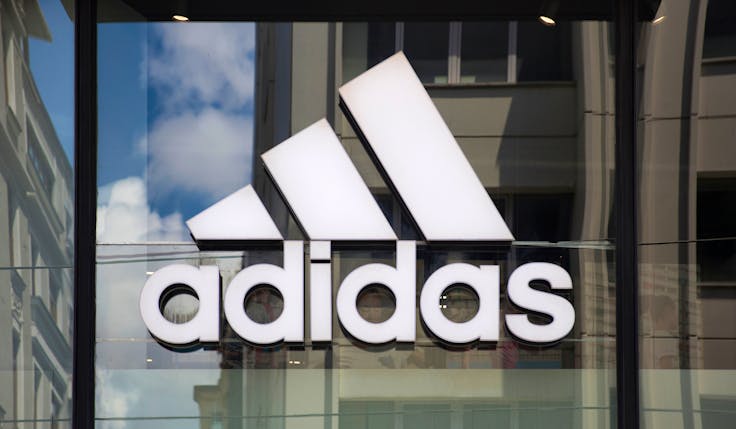
Adidas is celebrating double-digit growth in its direct-to-consumer business during the second quarter, with ecommerce now representing 20% of total sales.
The sportswear giant saw net sales rise 10.2% in the three months to 30 June to €5.6bn (£4.7bn), while its operating profit over the period hit €392m (£328m). From a half year perspective, operating profit reached €828m (£692m), down from €1.248bn (£1.044bn) during the same period in 2021.
Adidas ramped up spend on marketing and ‘point-of-sale expenses’ by 7.6% to €663m (£554m) during the second quarter, as the brand “continued to prioritise” investing around the launch of new products. These investments included campaigns to promote the brand’s new sportswear collection, Supernova running franchise and the first drops in its collaboration with luxury fashion house Gucci, as well as work to promote its Run for the Oceans event in May.
However, as a percentage of sales, marketing and point-of-sale expenses fell 0.3 percentage points to 11.8%.
Operating expenses increased by 23% to €1.838bn (£1.537bn), which Adidas attributes to “continuous investments” into DTC, its digital capabilities and the logistics infrastructure.
The brand experienced “strong momentum” across its Western markets during the second quarter, with Asia-Pacific returning to growth. Indeed, markets representing more than 85% of Adidas’s business grew at a double-digit rate, as the brand benefited from the return of sport this summer.
However, CEO Kasper Rorsted did note the Chinese market is performing “slower than expected” due to Covid restrictions, with sales down 35%. He also warned of a potential slowdown in consumer spending across all markets during the remainder of the year.
The sportswear giant claims supply chain constraints fuelled by last year’s lockdowns in Vietnam reduced top-line growth by around €200m (£167m) during the second quarter, while its decision to suspend operations in Russia reduced revenues by more than €100m (£84m).
Commercial radio beats BBC for summer listening as Global claims 25.3 million weekly reach
Commercial radio stations have overtaken the BBC in summer listening hours for the first time since the 1990s. The reversal of fortunes is being attributed in part to the investments made by commercial stations in marketing and poaching BBC talent, as well as the launch of new services.
Global leads the commercial radio market across all measures, according to the second quarter RAJAR stats, with 25.3 million weekly listeners, across 242 million hours and a 24% share.
The radio group also claimed the top three commercial radio brands in the UK – Heart, Capital and Smooth – and the top two commercial breakfast shows – Heart Breakfast with Jamie Theakston and Amanda Holden with 3.7 million listeners, and Capital Breakfast with Roman Kemp at 2.5 million listeners.
Bauer Media notched up a reach of 21 million listeners, with a digital listening profile of 75%, ahead of an industry average of 68%. Bauer’s Hits Radio grew 2.8% compared to the previous quarter to 9.5 million listeners.
Meanwhile, Bauer’s KISS Network posted a 4.1 million reach, with main station KISS growing 9.3% to 2.5 million listeners. Across the Magic network, the Mellow Magic station grew 13.5% quarter on quarter, while audiences tuning into Magic Soul rose by 24.3%.
BBC radio stations accounted for 48.1% of the almost 1 billion hours of total radio listened to by UK audiences in the three months to 26 June, the Guardian reports. The RAJAR figures show on average 32.9 million listeners tune into BBC radio stations weekly, versus 36.2 million listening to commercial stations.
The broadcaster has also lost a slew of high-profile talent in recent months, with Newsnight’s Emily Maitlis, BBC News America Editor Jon Sopel and political broadcaster Andrew Marr all joining Global’s LBC station.
READ MORE: Commercial radio beats BBC in summer numbers for first time since 1990s
Hugo Boss credits brand refresh for driving ‘impressive growth’
Hugo Boss claims its “comprehensive” brand refresh has helped the fashion brand attain “impressive growth” during the second quarter.
Group revenue rose 40% to €878m (£735m) over the three-month period, the strongest second quarter in Hugo Boss’s history. Compared to the second quarter of 2019 pre-Covid, currency-adjusted group sales rose by 29%, driven by strong demand in Europe and the Americas.
The company’s gross margin was up 230 basis points to 63.5%, which Hugo Boss attributes mainly to an overall higher share of full-price sales, reflecting a “significant uptick in brand momentum” following the brand refresh.
The business says it has “significantly increased” the relevance of the Boss and Hugo brands within a “very short” space of time. The company introduced its ‘Claim Five’ growth strategy a year ago, the aim of which is to make Hugo Boss one of the “top 100 global brands”. Over the period, the business increased its marketing investment by 29% to €58m (£49m) in a bid to generate brand relevance.
The fashion label credits marketing efforts for driving reappraisal, including global brand campaigns for Boss and Hugo, which are said to have created a “strong buzz” on social media and increased relevance with younger consumers. According to the brand, the “bolder” new look of the latest collections has piqued the interest of these target groups and resulted in strong sell-through rates.
As a result, both brands recorded “significant” double-digit sales improvements. Currency-adjusted revenue for the Boss menswear brand is up 35% year on year and grew 29% compared to 2019 levels. Sales of Boss womenswear rose by 23% in the second quarter, up 6% on 2019.
For the Hugo brand, currency-adjusted sales increased by 37%, translating into growth of 39% compared to pre-Covid levels.
Online the group recorded double-digit growth, up 11% on currency-adjusted basis year on year and 128% on pre-Covid levels. In terms of brick-and-mortar retail, revenues rose 38% compared to the prior year and 19% on 2019. The business describes the opening of the new Boss flagship store on London’s Oxford Street in June as an “important milestone.”
Given the success of the second quarter, Hugo Boss expects sales to hit a record high for the 2022 full year of between €3.3bn (£2.8bn) and €3.5bn (£2.9bn).
UK Parliament ditches TikTok account days after launch
 The UK Parliament has closed its TikTok account just days after launch amid fears over the social media app’s links to China.
The UK Parliament has closed its TikTok account just days after launch amid fears over the social media app’s links to China.
The account has been locked and the single post, a video showing tourists the best way to take a selfie with Big Ben, has been deleted. According to Commons Speaker Lindsay Hoyle, the TikTok account was “an attempt to engage with younger audiences” about the work of parliament.
The decision came amid pressure from a group of Tory MPs, who lobbied that the account should be taken down “until credible assurances can be given that no data whatsoever can be transferred to China”.
The MPs claimed the data security risks associated with the app “are considerable”, arguing TikTok data is “routinely transferred to China” via Chinese parent company ByteDance. There were also suggestions from the MPs that TikTok executives “may have misled parliament” when assuring them in an evidence session last year that no data is transferred.
A TikTok spokesperson told the Guardian the UK Parliament’s decision to close its account is disappointing, adding that the team are ready to “clarify any inaccuracies” about the platform.
One of the MPs in question, Iain Duncan Smith, has suggested Downing Street and any senior ministers with a TikTok presence should close their accounts with immediate effect.
Launched in October 2021 by outgoing Prime Minister Boris Johnson, the No 10 TikTok account has close to 300,000 followers and was set up to showcase “behind-the-scenes insights” into the work of government.
READ MORE: No 10 should follow parliament and ditch TikTok, says Tory MP
Wednesday, 3 August
Airbnb investing ‘fully’ in marketing as it records highest booking level to date
Announcing its second quarter 2022 results, Airbnb chief financial officer Dave Stephenson said there will be a “modest increase” in the company’s overall marketing spend in the second half of the year.
Speaking with investors yesterday (2 August), Stephenson said the company is “very happy” with its current approach to brand spend, and that the company is “investing fully at the moment”. In the company’s fourth quarter 2021 results, it said it had made the right decision to shift its marketing strategy from being “dependent” on search engine marketing, to being more brand-driven.
The company’s sales and marketing spend increased over the quarter, up to $379.8m (£315m) from $345m (£283.5m) last quarter.
The company said almost 104 million bookings were made between April and June, at a record high. Q2 revenue was $2.1bn (£1.7bn), growing 58% year over year and exceeding the same period in 2019 by 73%. The company’s net income of $379m (£315m) makes this its “most profitable” second quarter to date.
Stephenson said, in terms of expanding marketing spend, more investment could be coming as Airbnb widens its country offering. “So later this year and into early next, you could see us expanding into more countries because we’re seeing such good success with our investment right now,” he said.
Oatly increases marketing spend by £5m as losses increase
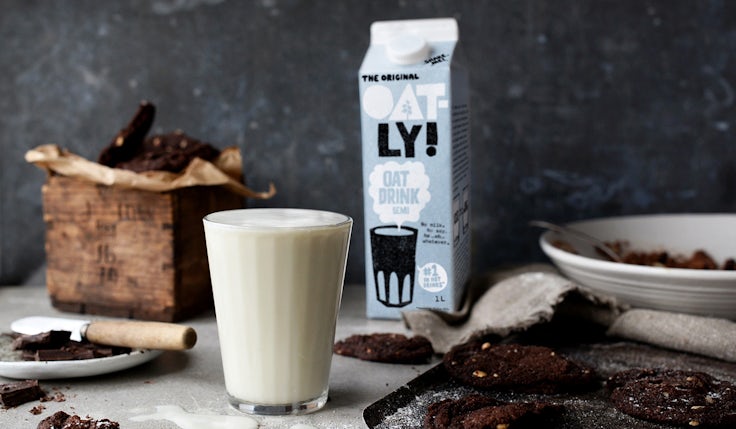 Dairy alternative brand Oatly increased its marketing spend by $6.2 million (£5m) in the second quarter of this year, the company said as it announced its Q2 results.
Dairy alternative brand Oatly increased its marketing spend by $6.2 million (£5m) in the second quarter of this year, the company said as it announced its Q2 results.
Citing a “challenging operating environment” in terms of the war in Ukraine, Covid-19, and inflationary and supply chain pressures, CEO Toni Petersson said on a call with investors yesterday (2 August) that it is taking longer than expected to convert consumers to the oat milk product in the EMEA region, due to the macroeconomic uncertainty.
Despite this, he said the brand’s “leading brand position and velocity” remain strong. The company’s second quarter losses reached $72m (£59m), increasing from $59.1m (£48.6m) last year, however the company has seen a sales growth of 22%, or 30% in constant currency.
The company’s revenue reached $178m (£146m), increasing 21.8% compared to $146.2m (£120m) this time last year, with EMEA revenue rising by 5% to $82.5m (£67.8m) and revenue in the Americas rising 25.2% to $51.8m (£42.6m).
“As we expand and scale our more localised production footprint while remaining disciplined in our capital allocation, we are confident in our ability to achieve much better production economics and operating efficiencies, reduce our environmental impact, and achieve profitability,” said Petersson.
“Global consumer demand remains as strong as ever and we have a proven multi-channel strategy that we believe positions us well for long-term growth and profitability.”
BP reports largest quarterly profit in 14 years
As the cost of living crisis continues and bills soar, BP has reported its biggest quarterly profit in 14 years, with underlying profits hitting $8.45bn (£6.9bn) between April and June.
The number is more than three times the amount made in this period last year and BP’s profits for this quarter are also the second highest in the company’s history.
BP CEO Bernard Looney said the results show “that BP continues to perform while transforming”.
“Our people have continued to work hard throughout the quarter helping to solve the energy trilemma – secure, affordable and lower carbon energy. We do this by providing the oil and gas the world needs today – while at the same time, investing to accelerate the energy transition,” he adds.
Former vice president of BP, Professor Nick Butler, told the BBC that he believes the firm is “very sensitive to the reputational problems of making money at this level” while saying there’s a “real case” for the government pulling the industry together to “find a plan” for winter.
In May, the government announced that oil and gas firms would pay an extra 25% on profits made in the UK.
READ MORE: BP sees biggest profit in 14 years as energy bills soar
ISBA completes first phase of ad industry consultations to part-fund Origin
Following its completion of tests in January this year for Origin, the Incorporated Society of British Advertisers (ISBA) has finished its first phase of consultations with advertisers in the UK regarding its proposal to part-fund the cross media measurement service with an advertiser levy.
ISBA says the “overwhelming weight” of positive feedback following the consultations means the organisation can move forward with its plans for the second phase, which will see it propose costs and timings to the UK media industry later this year.
“I am grateful for the feedback during the consultation process and encouraged by the considerable support expressed by many organisations from across the industry,” says ISBA director general Phil Smith.
“We will respond to all feedback received and move forward with proposals to fund the core reporting service, which will focus on cross-media reach and frequency at launch.”
Later, the core reporting service will be joined by an advanced reporting capability which offers a full cross-media measurement service, Smith adds.
Co-op extends partnership with Deliveroo
The partnership between Co-op and Deliveroo has been extended for another three years, as Co-op looks to add an extra 110 of its retail stores available to the app by the end of 2022.
Co-op is one of Deliveroo’s largest grocery partners, having first joined the platform in 2017.
Ecommerce director at Co-op, Chris Conway, says the retailer is “committed to exploring new and innovative ways” to serve its members and customers.
“As a convenience retailer, the ability to come into stores will always be important to customers, but we also know that shoppers want flexible and convenient options online,” he adds, saying the company is focusing on providing customers with what they “want and need” in whatever way they choose to shop.
The partnership extension comes following news that Co-op is cutting its investment in change and transformation projects by £47m next year, and is axing marketing and customer roles by a fifth, with 400 redundancies at its head office amid a “tough” economic environment.
When the group reported its 2021 results in April this year, then-CEO Steve Murrells said: ““We cannot shy away from this reality and it is important that, during 2022, we take the action needed to strengthen our underlying financial position.”
READ MORE: Co-op and Deliveroo extend partnership for three years and add 110 new stores
BA halts Heathrow short-haul flight sales
 British Airways has stopped selling short-haul flight tickets from Heathrow until 15 August, as the airline attempts to prevent further disruption amid flight cancellations and airport problems that have plagued UK airports this year.
British Airways has stopped selling short-haul flight tickets from Heathrow until 15 August, as the airline attempts to prevent further disruption amid flight cancellations and airport problems that have plagued UK airports this year.
The move by BA is in response to Heathrow’s passenger cap, which has limited the number of passengers coming through the airport to 100,000 a day. Staff shortages at a number of airports have led to issues with queues, baggage and delays.
The news comes following BA’s cancellation of more than 10,000 summer flights last month, but it says it will not be removing any further departures. Following 15 August, the airline will restrict sales “dynamically” rather than further bans, but says it will continue to limit available seats for busy periods throughout the summer season.
“We took pre-emptive action to reduce our schedule this summer to give customers certainty about their travel plans and to build more resilience into our operation, given the ongoing challenges facing the entire aviation industry,” says a spokesperson for the airline.
READ MORE: BA restricts sales for Heathrow short-haul flights for rest of summer
Tuesday, 2 August
JD Sports sells Footasylum in half-price deal
JD Sports has been forced to sell Footasylum in a cut-price deal after the UK’s competition watchdog ruled against the acquisition.
It has sold the sports retailer to German asset management firm Aurelius Group for £38m, less than half the price it originally paid.
JD Sports bought rival Footasylum back in 2019 for £90m as it looked to bolster its position on the UK high street. But the UK’s Competition and Markets Authority (CMA) flagged concerns the acquisition would dent competition.
Footasylum has 63 UK stores, while JD Sports operates 3,400 stores across the UK, North America and other markets. The CMA ruled that competition on price, range and service levels on footwear and clothing could be reduced if the deal went ahead.
JD Sports contested an initial ruling, with former CEO Peter Cowgill suggesting the deal would not impact competition given more customers now buy direct from brands such as Nike, Adidas and Puma online.
Cowgill stood down in May, months after he and Footasylum boss Barry Brown were caught secretly meeting and fined nearly £5m for sharing commercially sensitive information during the competition investigation.
Kath Smith, the interim chief executive of JD Sports, said: “I would like to sincerely thank the teams at Aurelius and Footasylum who worked collaboratively with the CMA to agree this transaction. We wish both parties every success for the future.”
READ MORE: JD Sports agrees £38m sale of Footasylum after UK watchdog ruling
Greggs hails ‘strength’ of brand as sales beat 2019 levels
Greggs has increased total sales by 27.1%, with life for like sales growth hitting 22.4% in the first half of 2022, as the business highlights the “continued strength” of its brand as being key. Like-for-like sales were also 12.3% higher than the equivalent period in 2019 despite footfall remaining lower as the business ramps up its delivery service.
However, its pre-tax profit remains flat at £55.8m, up marginally from the £55.5m in recorded in the first half of 2021, which it says reflects the reintroduction of business rates, the increase in VAT and higher levels of cost inflation.
Over the period Greggs opened 70 new shops and has plans to open a further 150 by the end of 2022. The brand says it has adjusted to consumer behaviour post-pandemic by focusing its new store openings away from traditional shopping areas, which has “counter-balanced” the slower recovery seen in large city centres and public transport hubs, it says.
The brand currently has 2,239 stores, after also closing 12 during the first half, with plans to extend this to at least 3,000, with a focus on areas where it still has relatively low presence such as retail parks, railway stations, airports, supermarkets and Central London.
Alongside plans for expansion, Greggs also plans to refurbish existing stores so they can better serve delivery and click and collect, which it says will also “play a part” in enabling its strategic growth agenda. It plans to refurbish around 100 shops to this standard in 2022, with 250 store slated annually thereafter.
Through its partnership with Just Eat, Greggs delivery is now available from 1,180 stores in the UK, up from 1,000 at the beginning of the year. It believes delivery has more potential for growth, particularly as it increases availability into the evening.
Greggs also plans to extend trading hours to at least 8pm in more stores as it looks to “better understand” the extent of demand. It says evening daypart is the strongest-growing trading time, although this is from a low base.
Meanwhile, the Greggs app, with relaunched in 2021, has “grown strongly” it says, fuelled in part by increased marketing of the benefits.
Roisin Currie, Greggs’ CEO, says its first half results “demonstrate the continued strength of the Greggs brand”.
“Greggs delivered an encouraging performance in the first half of the year with sales ahead of 2019 levels,” she adds. “During the period we continued to make good progress with our strategic priorities, including expanding our shop estate and making Greggs more accessible to customers through extended trading hours and digital channels.”
Given its value proposition, she believes Greggs is “well positioned” to navigate the challenges affecting the economy, as it has a “number of exciting growth opportunities ahead” and “clear strategy for expansion”.
Domino’s shifts marketing focus to price as it ramps up investment
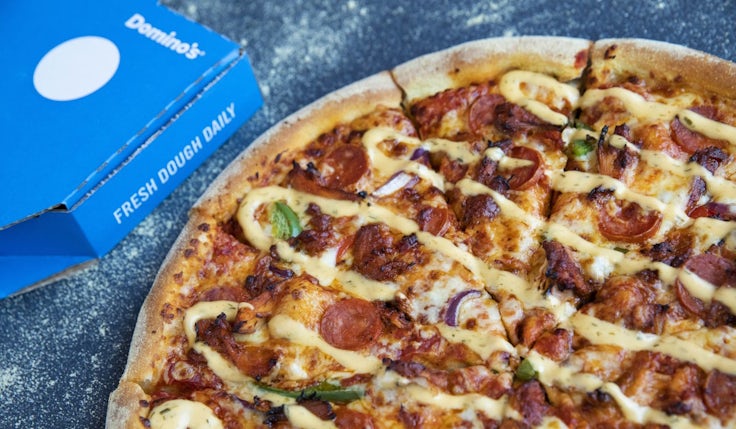 Domino’s expects marketing spend to be “significantly higher” over the second half of the year as it looks to build on momentum generated in H1, with market share, order numbers and sales all up during the first half of 2022.
Domino’s expects marketing spend to be “significantly higher” over the second half of the year as it looks to build on momentum generated in H1, with market share, order numbers and sales all up during the first half of 2022.
The brand increased market share in the UK takeaway market to 6.6% in the second quarter of 2022, up from 6% in the same period last year.
Total orders grew by 2.1% in the first half, with like-for-like sales increasing by 2.4%. Underlying profit before tax hit £50.9m, down 16.3% compared to 2021, with the pizza chain saying it expects profitability to be “second half weighted”.
To help drive this growth Domino’s will be investing more in marketing over the second half of the year compared to the first six months. It will also be shifting focus from its ‘Domin-Oh-Hoo-Hoo’ campaign to “accelerating spend” in third and fourth quarter campaigns.
Domino’s came to an agreement with franchisees in December and now the system is “fully aligned” the brand has again started running national price campaigns, which it believes will result in market share growth.
Outgoing CEO Dominic Paul, who is set to join Whitbread in December, says: “[The resolution with franchisees] enabled us to restart national price campaigns offering customers compelling value and to accelerate market share growth. We have worked really constructively with our franchisees to learn from the first half campaigns.
“We will be increasing our media spend in the second half compared to the first half, amplifying our value message to customers as we head into key events such as the men’s football World Cup. We are also continuing to acquire new customers by expanding our trial with Just Eat following positive initial results.”
TikTok to start selling fresh food direct
TikTok is now selling fresh food directly via the TikTok Shop, with brands including Pasta Evangelists, online fishmonger The Fish Society and The Veg Box Company already on board.
The social platform says food content has racked up more than 26 billion views and claims it has been the “catalyst” for some of the biggest viral food trends of the past year.
After completing a purchase on TikTok each individual brand will then handle delivery directly.
Finn Lagun, co-Founder and CMO of Pasta Evangelists, describes the move as “an exciting opportunity to change the face of modern retail”.
“We were early innovators in bringing fresh, artisan pasta to people at home and now we’re going to be one of the the first fresh food brands in the UK to be sold through TikTok,” he adds.
Patrick Nommensen, senior director of ecommerce operations at TikTok, says: “Enabling fresh food brands and creators to sell directly to our community through a seamless transaction on TikTok Shop is a logical next step [for TikTok]. There will also be a huge opportunity for new food brands looking for a springboard to market, and I am excited to see more fresh products available on the platform.”
Half of UK market research firms predict growth for the sector
Just over half (51%) of UK market research firms believe the sector will grow over the next year, according to the latest EFAMRO Moodindicator survey. Conversely just 6% think it will shrink.
The study, which is based on a sample of 249 market research firms across 11 European countries during Q2, also finds nearly three-quarters (71%) of UK firms believe research revenues will increase over the coming year. When looking across all countries surveyed this figure drops to 64% but this is still significantly higher that it has been. In Q4 2021 when the survey was last carried out just 25% of market research firms expected their revenues to rise.
Overall, UK businesses feel positive about the future, with a net +45 positivity rating.
Jane Frost, CEO of the Market Research Society, describes the positive results in the latest survey as “encouraging”, and says the UK’s research sector has demonstrated “exceptional resilience and remains strong”, despite the unrest of the past couple of years.
“As much as anything it’s a testament to the importance of research in so many aspects of life. Without the insight and direction that comes from research, the correct decisions simply cannot be made, especially in the face of major challenges like the cost-of-living crisis and levelling up,” she says.
“Though I am pleased by the positive results of the survey, it is clear that there is still some concern, and rising inflation may require difficult budgetary choices. However, it’s vital we continue laying the groundwork for long-term growth including by encouraging talented young individuals to choose market research as a career.”
The latest IPA Bellwether shows a slow down in market research budgets, which saw a net decline of -6.5% in the second quarter of 2022, down from -3.5% in the first quarter. Market research budgets had been rising towards the back end of 2021, with a net balance of 0.7% of companies increasing budgets in Q3 and 7% in Q4.
Monday, 1 August
Heineken ups investment in marketing by 28.5% amid profit boost
Heineken, the beer company behind brands including Heineken, Birra Moretti and Amstel, increased spend on marketing and sales by 28.5% over the first half of 2022, reaching a total of €264m (£221m).
The rise brings Heineken close to pre-pandemic levels of spend, which it cut in response to nationwide lockdowns and the closure of pubs and bars. Marketing and sales expense as a percentage of net revenue rose from 9.3% to 9.4% year on year, benefiting from “operating leverage” and “structural effectiveness gains”, the company says.
Overall, revenue for the first six months of the year was up 37% to €16.4bn (£13.7bn), while operating profit grew 20.6% to €2.1bn (£1.8bn). Net profit grew 22.3% to €1.3bn (£1.1bn).
“Our business performed well in the first half of 2022. We grew ahead of the industry in more than half of our markets and the Heineken brand again showed strong momentum, boosted by stepped-up brand support,” says CEO and chairman Dorf van den Brink.
Indeed, the group’s flagship Heineken brand grew volume by 14.6% in the second quarter of the year, closing the first half with a 13.8% increase, up 32.9% compared to 2019. The company notes that according to Kantar’s BrandZ 2022 global survey, Heineken was the fastest growing in brand value among top alcohol brands. It was also the most awarded alcohol brand at this year’s Cannes Lions International Festival of Creativity.
“Our actions on pricing, revenue management and productivity offset significant inflationary pressures in our cost base. As a result, operating profit is now firmly ahead of 2019,” van den Brink adds.
Meanwhile, Heineken is continuing to “step up” investment behind its digital transformation, to build a “future-ready” business and become the “best-connected” brewer. On top of developing its B2B digital platforms “at pace”, Heineken is particularly focused on strengthening its direct-to-consumer (DTC) offering.
For example, the net revenue of European digital DTC platform Beerwulf was more than 50% ahead of pre-pandemic levels over the period, despite the post-pandemic shift in consumption from in-home to the on-trade as it reopened. The active customer base for the firm’s home draught systems is close to 40% ahead of pre-pandemic levels.
Moving forward, Heineken says it sees “plenty of opportunities” to expand its product portfolio beyond beer to “better meet the needs of more consumers”, with its portfolio of flavoured alcoholic beverages, including ciders and hard seltzers, experiencing volume growth in the high-single digits.
Van den Brink concludes: “We continue to face an uncertain outlook for consumers and businesses alike. Remaining vigilant, we are fully committed to drive our EverGreen transformation for sustained, long-term value creation.
“In terms of outlook, we reiterate our 2022 goals. For 2023, we move from an operating margin objective towards delivering operating profit organic growth. Our medium-term aspiration remains to deliver superior, balanced growth with operating leverage over time.”
Octopus Energy chases acquisition of collapsed rival Bulb
Octopus Energy is reportedly nearing a deal with government ministers to acquire rival energy firm Bulb, which collapsed in November following the surge in wholesale gas prices.
The company has asked the government for £1bn in taxpayer money to fund the takeover, Sky News reports, which would later be repaid in full. A deal may involve Octopus Energy forking out between £100m and £200m to take on Bulb’s approximately 1.6 million customers, as well as a “significant” profit-share agreement.
Sources told the news outlet an agreement may be reached within weeks, yet could still fall through due to the complexity of the deal.
Bulb was the largest energy company to collapse last year as the Russian invasion of Ukraine pushed up the cost of wholesale gas, alongside dozens of others.
If the deal goes through, Octopus Energy’s customer base would grow to approximately 5 million British households, making it one of the UK’s most significant energy suppliers. In comparison, British Gas claims to supply gas and electricity to more than 7 million homes and businesses.
Data from YouGov and Brand Finance last year showed Octopus Energy and British Gas to be in the best position for growth as the sector underwent a period of consolidation, although more recent data shows both have taken hits to their brand health as the impact of the energy crisis has further developed.
READ MORE: Octopus Energy seeks £1bn taxpayer support to seal deal for stricken Bulb
De’Longhi kicks off first TV sponsorship
Domestic coffee machine brand De’Longhi is the new sponsor of the weather on Channel 4 until July 2023, as the brand aims to grow awareness of the “bean to cup” category.
This is the first time De’Longhi has ever sponsored a TV show, with the company describing Channel 4’s weather programme as a “prime sponsorship opportunity” and “another string in the bow” for the brand.
Viewers of the show will see a number of different creatives tapping into the forecast throughout the year. Idents have been created by independent agency Ignis.
“This sponsorship was a natural next step for De’Longhi to raise awareness of bean to cup coffee machines and democratise great coffee,” says UK marketing director Alex Pickering. “We look forward to seeing the impact it will have across the market.”
The move follows the launch of De’Longhi’s biggest ever campaign last year, in which the coffee maker signed Brad Pitt as its brand ambassador to boost awareness and drive growth at the premium end of the category.
At the time, Pickering told Marketing Week the UK coffee market has “really high potential” for growth, as it is not yet as “mature” as others in Europe.
Co-op to slash spend by £47m amid redundancy plans
The Co-op is to cut investment in change and transformation projects by £47m next year, including the planned round of approximately 400 redundancies announced last week, the Grocer reports.
Co-op is expecting to reduce its customer and marketing roles by around 20% as part of the redundancy round, which is focused on head office roles.
In a note to staff, CEO Shirine Khoury-Haq said the reduction in transformation and change activity equated to around 40% of Co-op’s capex plans.
She said: “Whilst our businesses are performing well, our trading environment remains challenging. So, we need to be agile and responsive to the environment we’re working in, and do all we can to ensure that our Co-op is commercially sustainable for the future”.
The redundancies come as part of proposed changes to Co-op’s operations to “support the delivery of our strategic priorities”, she added, which includes stopping work which doesn’t support that strategy.
In April, when the group reported its 2021 results, it warned of continuing problems with food supplies and inflation after its annual profits more than halved amid supply chain disruption and higher staff wages.
“It is clear we are facing into a highly uncertain economic climate, where rising prices in particular are placing a real challenge on both consumer spending, but also on corporate costs and expenditure,” said then-CEO Steve Murrells
“We cannot shy away from this reality and it is important that, during 2022, we take the action needed to strengthen our underlying financial position.”
READ MORE: Co-op job losses plan linked to £47m spending cut (£)
Waitrose joins supermarkets scrapping fresh food ‘best before’ dates
Waitrose has joined Tesco and Marks & Spencer in dropping ‘best before’ dates on hundreds of fresh food products in a bid to reduce food waste in the UK.
Dates will be removed from nearly 500 products including fruit and vegetables, according to the BBC.
Tesco first ditched best before dates on fruit and veg in 2018, while M&S made the same move earlier this summer. M&S replaced the dates with a code its staff can use to check freshness and quality.
Elsewhere, in January Morrisons replaced ‘use by’ dates on its milk for best before labels, and now encourages customers to use a ‘sniff test’ to check quality. The supermarket hopes the move will save up to 7 million pints of its own-brand milk being poured away each year.
Marija Rompani, director of sustainability and ethics at Waitrose’s parent company, John Lewis Partnership, says: “By removing best before dates from our products, we want our customers to use their own judgement to decide whether a product is good to eat or not, which in turn, will increase its chances of being eaten and not becoming waste.”

